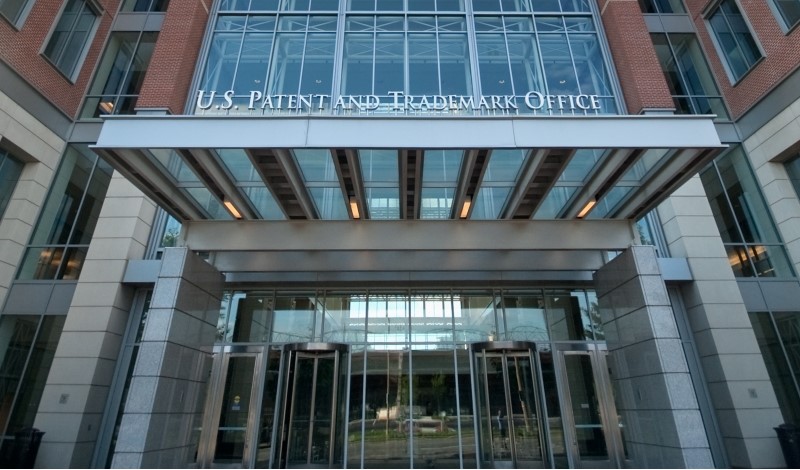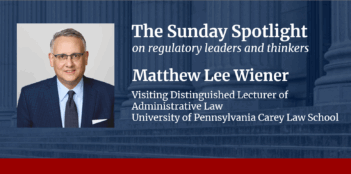
United States v. Eaton serves as the constitutional basis for thousands of executive branch decisions.
Recently, I had lunch with some of the most experienced administrative law scholars in the country. I wanted to discuss United States v. Eaton. They had never heard of the case. I expressed surprise because it is the sole basis for the constitutional validity of tens of thousands of important decisions made by the executive branch every year. They urged me to describe the case and its significance in an essay. Here it is.
I first became aware of Eaton when I read the U.S. Court of Appeals for the Federal Circuit’s opinion on remand from the U.S. Supreme Court’s 2021 opinion in United States v. Arthrex.
The Supreme Court in Arthrex held that several hundred administrative patent judges (APJs) had been unconstitutionally appointed. APJs have the statutory authority to make final decisions with the effect of invalidating a patent. The Court explained that only officers who are appointed through the process of nomination by the President followed by confirmation by the Senate—also known as PAS officers—can make final decisions in adjudications. APJs cannot make final decisions because they are appointed by the Secretary of Commerce.
The Court remedied the constitutional flaw by holding invalid a statutory provision that prohibited the Director of the Patent and Trademark Office (PTO), a PAS, to review the decisions of the APJs. The Court then remanded the case to the PTO’s Acting Director to reconsider the decision of the APJs who invalidated the patent at issue.
It is debatable whether the PTO complied with the Court’s order. When the PTO got the case on remand, the position of Director was vacant, as was the position of Deputy Director of the Patent and Trademark Office, the only other position in the PTO that is held by a PAS. Given the lack of any PAS in the PTO, the Commissioner of Patents, an inferior officer who is appointed by the Secretary of Commerce, reviewed and upheld the decision of the APJ. Thus, the remedy for a decision made by an inferior officer who lacked the constitutional power to make the decision was review by another inferior officer. The Federal Circuit upheld the PTO decision based primarily on the Court’s 1898 opinion in Eaton.
The facts of Eaton are fascinating. Sempronius H. Boyd was Vice Consul to Siam, the predecessor to Thailand. He was a PAS. When he learned that he had a fatal illness, he delegated his powers and duties to Lewis Eaton, a missionary who had been serving as his assistant. When Eaton asked to be paid for his service as acting Vice Consul for the months required to replace him with a PAS, the government refused to pay him. The government claimed that he had not constitutionally served as Vice Consul because he was not a PAS.
The Supreme Court held that Eaton was entitled to be paid because he had lawfully served as acting Vice Consul. The Court held that an inferior officer can be “charged with the performance of the duties of a superior for a limited time, and under special and temporary conditions.” It referred to a statute and a regulation that specifically authorized that practice in the case of a Vice Consul.
In Arthrex, the Federal Circuit held that the Director of PTO, a PAS, had constitutionally delegated his duties to the Commissioner, an inferior officer, based on a combination of Eaton, a provision of the Federal Vacancies Reform Act of 1998, and a standing directive of the Director. The statutory provision states that, if a PAS “dies, resigns, or is otherwise unable to perform the functions and duties of the office” “an inferior officer may fill in for him temporarily in an acting capacity.” The standing directive states that if both the Director and Deputy Director “positions are vacant, the Commissioner of Patents will perform the non-exclusive functions and duties” assigned to the Director.
The Federal Circuit acknowledged that the standing directive had the effect of authorizing an inferior officer to perform the functions of a PAS indefinitely and that the non-delegable duties of a PAS are “vanishingly small” under its interpretation of Eaton. It also noted, however, that a more narrow interpretation of Eaton would threaten the constitutional validity not only of hundreds of decisions made by the PTO but of many thousands of decisions made every day by agencies headed by people who are performing the duties of a PAS under a similar delegation of power.
It is easy to explain the Supreme Court’s decision in Eaton. The government must have some means of temporarily performing the important duties of a Vice Counsel who has a fatal illness during the months required for a PAS replacement to make the arduous journey from Washington to Bangkok on a horse and aboard a ship under sail. And it would be manifestly unfair for the government not to pay Eaton for performing those duties.
It is hard to apply the reasoning in Eaton to defend the many thousands of decisions that can only be made by a PAS officer that are now being made daily by hundreds of inferior officers under indefinite duration delegations of power that did not arise because of an emergency. Yet, that is where we are today. Indeed, a 2019 study found that 22.6 percent of officer positions were filled by people who were not officers but instead were performing the duties of an officer as a result of a delegation of authority supported only by Eaton. Few, if any, were delegated the power to perform the functions on a temporary basis during an emergency.




